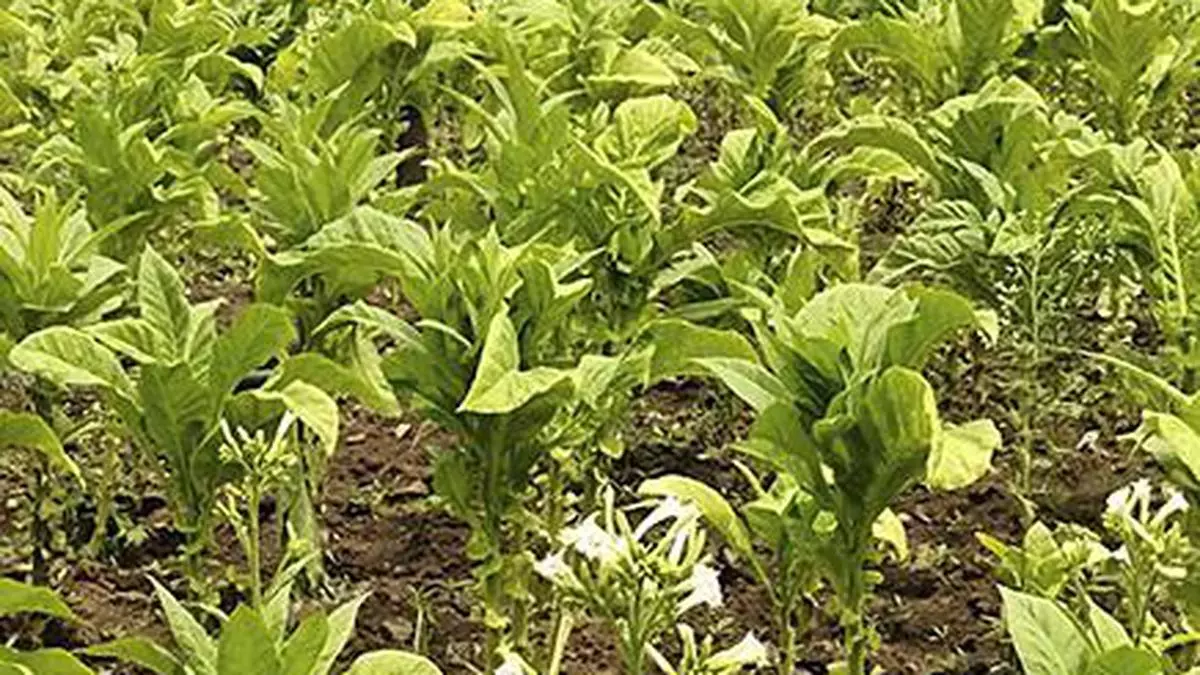Farmers’ body questions WHO recommendations on substituting tobacco cultivation with alternative crops
The All India Federation of Farmers Associations (FAIFA), a non-profit organization representing millions of farmers and agricultural workers in commercial crops across Andhra Pradesh, Telangana, Karnataka and Gujarat, on Wednesday challenged the World Health Organization to provide evidence on its recommendation that alternative crops should replace tobacco crops. Because it affects sustainable agriculture and contributes to the global food crisis.
FAIFA also provided representation to the Prime Minister’s Office (PMO), the Ministry of Finance, the Ministry of Commerce, and the Ministry of Health and Family Welfare to investigate the unscientific WHO recommendation. FAIFA has alleged that certain special interest groups promote the (misplaced) benefits of other crops that replace tobacco cultivation.
Tobacco cultivation is mostly practiced in semi-arid regions where alternative sustainable crops are not economically viable. However, even these barren lands are becoming more inhospitable due to climate change. In light of this situation, the WHO’s recommendations to replace tobacco with other crops do not make sense and are an agenda driven by vested interests, FAIFA said in a statement.
loss to farmers
Jaffari Gowda, President, Federation of All India Farmers Associations (FAIFA), said, “WHO officials should not make such unscientific statements or recommendations. We invite them to our lands where tobacco is grown for at least 30 days or as long as they want to experience extreme conditions more Direct. We challenge them to replace tobacco crops and offer alternative crops that are both rewarding and durable. If they fail, they should close their offices in the country and leave. This is a fair request because they are causing economic loss to the farmers.”
Previous attempts have been made in Andhra Pradesh where tobacco farmers have switched to alternative crops such as gram and rice. However, a study by the Central Tobacco Research Institute (CTRI) indicated that this substitution led to greater losses for farmers compared to their previous profits from tobacco cultivation.
The boom in illegal trade
Higher taxes increased the flow of illegal and smuggled cigarettes into the country. Volumes of illicit cigarettes in India have increased by a whopping 44 percent over a decade, rising from 19.5 billion cigarettes in 2011 to 28.1 billion in 2020, according to Euromonitor International. As a result, flue-cured Virginia (FCV) tobacco yield shrank by nearly 40 percent from 316 million kg in 2013-14 to 189 million kg in 2021-22, resulting in a loss of 35 million workdays and 30 workdays. percent decrease in income. Due to sharp decline in FCV crop size and crop substitution, profits of farmers have been cumulatively reduced by more than Rs 7,500 crore since 2013-14. In addition, the area of FCV cultivation in India declined from 2,21,385 hectares in 2013-14 to 1,22,257 hectares in 2020-21, FAIFA claimed.
drop in output
The Tobacco Board, under the Department of Trade and Industry, regulates tobacco cultivation and sets authorized production levels for each state. However, due to the impact of climate change manifesting itself through hurricanes, floods, and droughts, actual production has always remained below permissible levels. Between 2015-16 and 2020-21, authorized production versus actual production in Andhra Pradesh and Karnataka decreased from 1,572 million kg to 1,468 million kg, representing a decrease of more than 100 million kg. Moreover, in Karnataka alone, continued rains in 2022-23 significantly reduced tobacco production from the authorized 100 million kg to 59.98 million kg, indicating a 40 per cent drop in crop volume.
Murali Babu, Secretary General, FAIFA,He said:“We appeal to the World Health Organization to show its true intention to help the farming community and they must ensure full compensation for any loss incurred by the tobacco growers. We require them to show their intentions and deposit a minimum of Rs 1,000 crore with the Tobacco Board and keep renewing this amount every year so that this can be distributed The amount the farmers have to cover the loss to replace the crops.”
“The WHO Framework Convention on Tobacco Control (FCTC), an international treaty to which India is a party, poses a threat to the livelihoods of tobacco growers as it has not provided viable alternatives to tobacco growing countries. Given that the recommendations will lead to loss of revenue including Foreign exchange earnings, the government of India should investigate the recommendations.
India should not implement the guidelines or recommendations given by the World Health Organization as these are ‘one size fits all’ solutions based on the western model of tobacco consumption. They do not necessarily serve the purpose of controlling tobacco or increasing revenue in a country like India. Moreover, India being a large producer of tobacco, the livelihoods of millions would be affected due to such appeals without proper agro-climatic studies, according to FAIFA.
